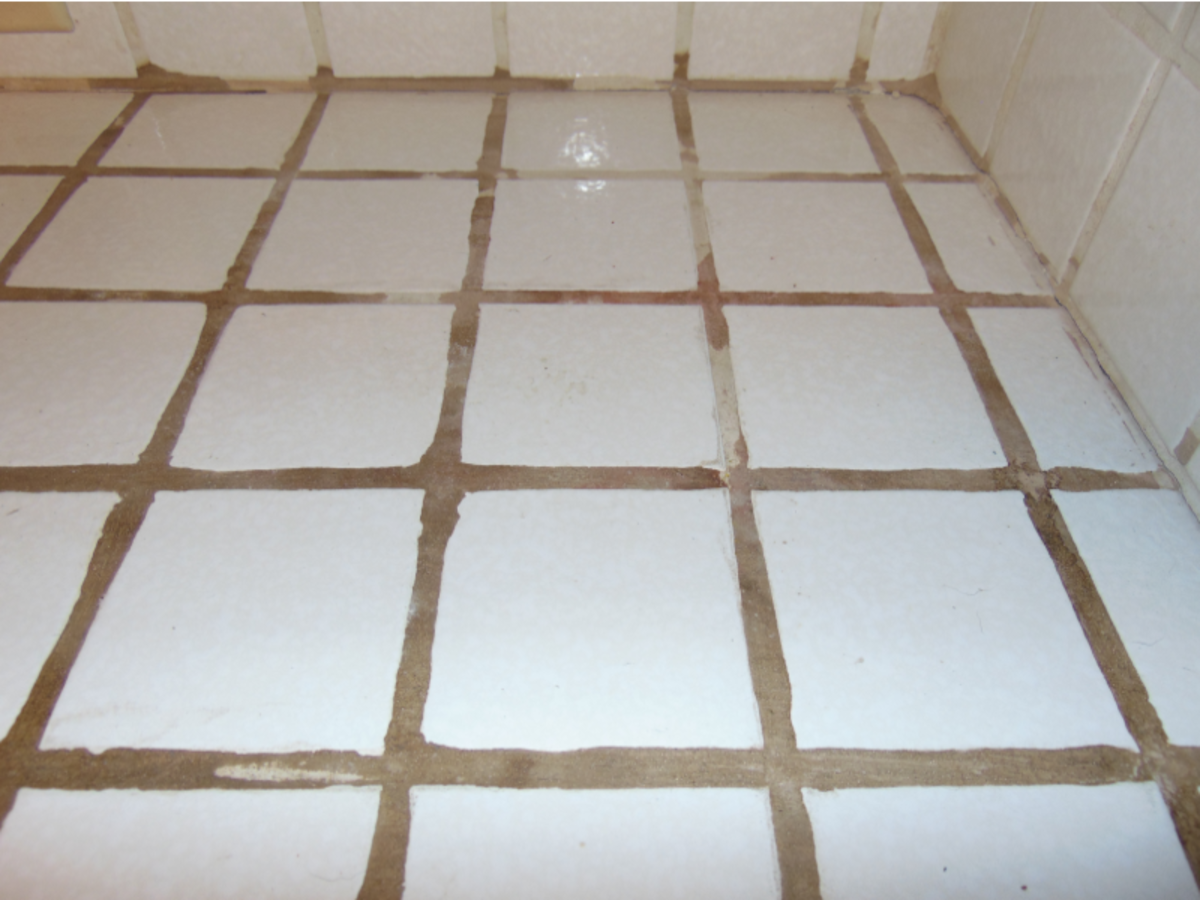Kitchen Tips: 6 Handy Tricks To Know
Save Time; Rescue Mistakes; Save Your Sanity
This is a collection of the best kitchen hints I have found useful over the years. They can save your sanity (and your budget) when things go wrong.
1. Ewww--Too Salty!
Accidentally get too much salt into your soup? Stew? Spaghetti sauce?
Peel a fair-sized potato and cut it into quarters. Toss it in to boil or simmer in the pan for a bit. The salt will attract to the potato, which can then be fished out and discarded. That's why you don't want it cut smaller than in fourths; you need to be able to find all the pieces.
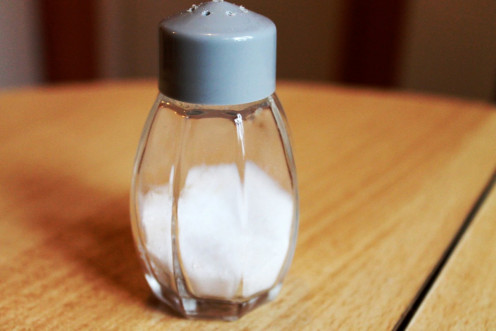
2. Gravy Way Too Thin
If you don't have any cornstarch on hand to thicken the gravy, you can add a little bit of instant mashed potato flakes. (Not more than a tablespoon for a pint of gravy, though--you want it to still be pourable.)
My mother used to thicken gravy with a flour-water mixture, but this is tricky business if you don't want lumpy gravy.
3. Cream of Something Condensed Soup--No Milk
If you have already opened the can, and discover you have no milk to mix it with, or not enough, it won't hurt to use water, or half and half water and milk. True, it will be much less "creamy," but on the up side, it will also then have a reduced calorie count.
If you have powdered skim milk on hand, you can mix that at a ratio of 1/3 cup of the powder to 1 cup water. Again, it won't be quite as creamy, but no one will ever know it was skim milk, hidden as it is under the soup flavors.
What? No Milk?
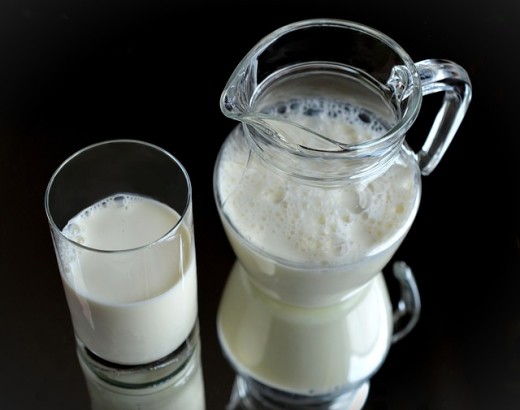
4. Oh, NO!! You Burned the Rice (or Beans, or...)
First of all--do not panic. Don't toss the entire contents of the saucepan into the trash. Here are the steps you must take to salvage the food, but remember, you must act fast:
- Immediately remove the pan from the heat, the moment you discover the problem.
- Run cold water into the sink, dishpan or another pot large enough to hold the first one--whichever of these you can do quickly.
- Add ice cubes to the cold water.
- Immerse the pan with the burned food only up to the rim. Do not allow any water to run inside. Allow it to soak for a couple of minutes, until the food stops steaming. (You will probably need to stand there and hold the scorched pan in the proper position.)
- Get a bowl large enough to hold the contents of the pan, and dump the food into the bowl. Very important: dump the contents only! Do not attempt to stir, scrape, or salvage any part that does not just dump out on its own! (You might need to very gently loosen the top layer, but do not dig down!)
- Serve the salvaged food in the bowl, with whatever sauce or condiments you would usually use. It is very unlikely that there will be any burnt flavor in this food--if there is, it will most likely be a mind-over-matter issue noticed only by those present when it happened.
Here's why this works: by acting fast, you stop the cooking process instantly, you cool down the pan to stop it further, and that cooling works through to the food. By not stirring or scraping, the part that is burnt, and will taste burnt, is left in the pan. You serve only the salvaged portion.
Yes, you wasted some food, but you did not lose all of it. As for cleaning the burned-on food? Read on.
Act Quickly!
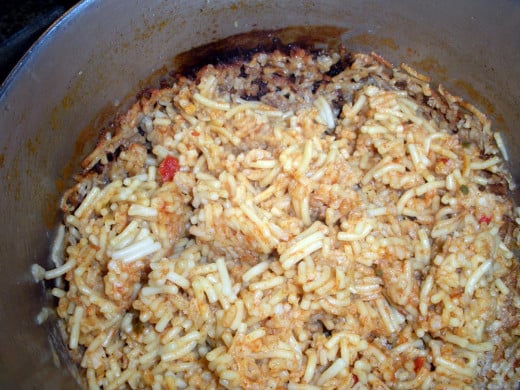
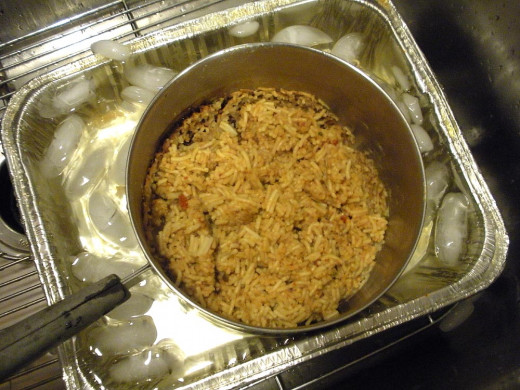
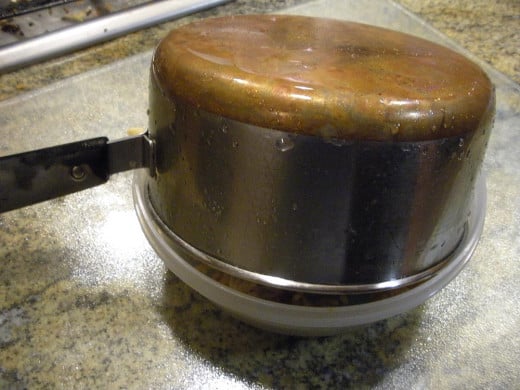

5. Ack! Is My Pot Ruined?
If you have burned food onto a saucepan or skillet, fear not. You may be able to salvage it, if the metal is not actually damaged. (Actually, if it burned long enough and got hot enough to damage the metal, you are likely have a far worse problem: namely, a kitchen fire!)
This strange-sounding remedy is totally counter-intuitive, but it does work!
- Fill the pan with water, and put it back on the stove, and bring the water to a full rolling boil. Allow it to boil for a minute or so, making sure the water does not boil away, or you will have made matters worse.
- Turn off the heat, and use a cooking spoon to scrape and stir the food residue from the bottom and sides of the pan. Most of it will scrape off easily. Dump the contents of the pan through a strainer in the sink. (You don't want to foul your plumbing by dumping as much food waste as there will be. Even with a garbage disposal, it's a lot to ask of your pipes.)
- Then, put the pan to soak in hot soapy water. After a short while, or overnight if you prefer, you should be able to scrub the rest of the burned-on residue fairly easily, or at least with a lot less elbow grease than you would have used otherwise. And hurrah! You pan is saved!
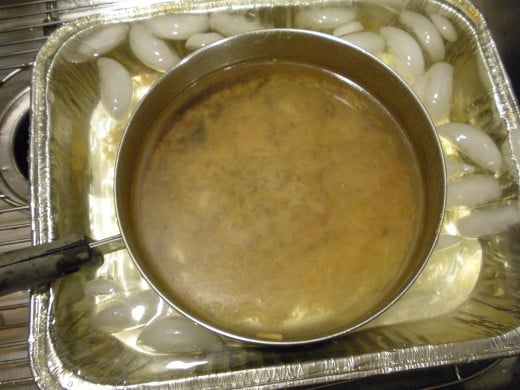
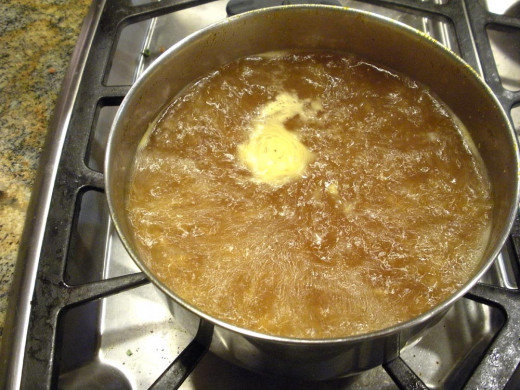
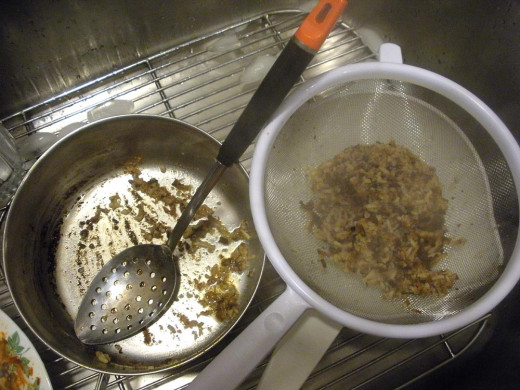
6. No-Stick; No Boil-over Pasta
Now here's a tip to save you extra cleanup, instead of fixing something that already went wrong!
When cooking any kind of pasta, add about a tablespoon of oil (I prefer to use olive oil) to the pot before adding the water. Then, rub some of the oil all around the inside of the top edge of the pot, in about a 1" wide band.
This combination of tricks does two things. The oil in the water will help keep the pasta from sticking together, and the band of oil around the top of the pot will keep it from boiling over. I don't know the physics of why this should work, but it does.
A second trick I recently learned to prevent boil-overs, is to place a long wooden spoon across the top of the pot. I have no idea why this works, either!
Any Other Tips?
I hope you've found any or all of these tips and tricks to be useful. If you have a pet kitchen/cooking trick you'd like to share, feel free to leave it in the comments below.
© 2013 Liz Elias


